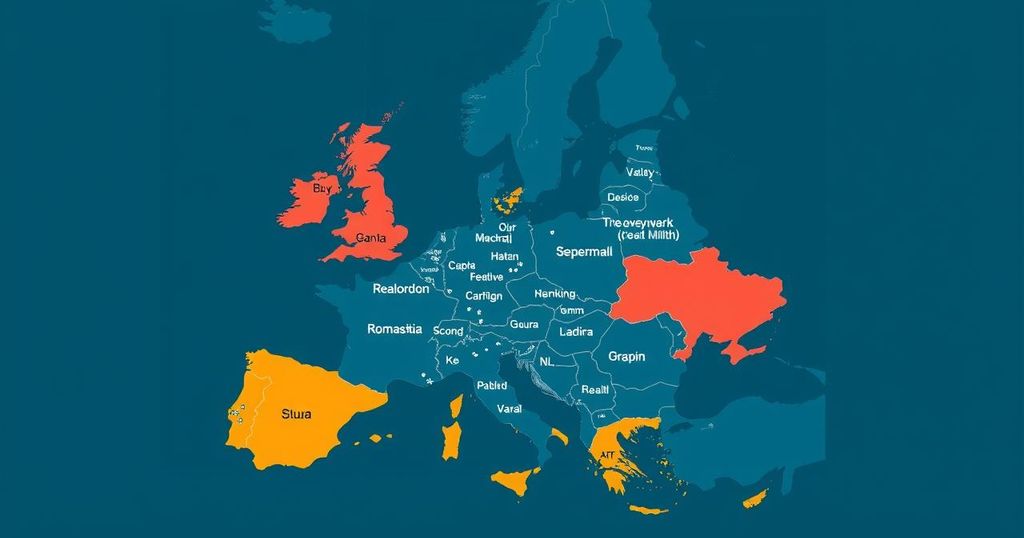As the U.S. election approaches, concerns grow over Europe’s waning significance in American foreign policy, regardless of whether Trump or Harris wins. The article suggests Europe must prepare for an increasingly independent future, as reliance on the U.S. for security and influence is diminishing, urging a move towards European autonomy and unity amidst global uncertainties.
As America stands at a crossroads with the impending election, the distant echoes of Europe’s fading significance resonate loudly. Whether Donald Trump or Kamala Harris emerges victorious may intensify the angst across the Atlantic, but both candidates represent a world where Europe can no longer lean heavily on American support. The stark reality is this: America’s interest in Europe has dwindled for three decades, and neither candidate is poised to rekindle the transatlantic camaraderie of the early ’90s. While Trump may rattle nerves with his admiration for Putin and volatility regarding NATO commitments, Harris promises a more stable relationship, underscored by continuity in American global leadership. Yet, even with this choice, the broader narrative remains unchanged — Europe’s importance in Washington is in decline. In a world increasingly dominated by the allure of the Indo-Pacific, Europe has become a mere backdrop, a vacation spot in the minds of many Americans, rather than a vital player on the global stage. Reflecting on the past, when Bill Clinton commanded respect and admiration as North America’s figurehead, it’s hard to ignore the stark contrast with today’s geopolitical landscape. Back then, America wielded its influence through military might and cultural prowess, drawing Europe into its orbit. Now, troop presence in Europe has diminished considerably, as has America’s once-glistening spot on the continental stage. Today, European leaders are forced to confront an inevitable truth: With an increasingly indifferent Washington unwilling to shoulder the burden of European security, the continent must reassess its own abilities. Diminished ties, fought over NATO budgets, and lingering threats from Russia push Europe toward a new reality where reliance on American support may have to be reconsidered. The call is clear — Europeans must take charge of their destiny, fostering unity and independence in defense strategy, even as skepticism and complacency linger within their ranks. As the clock ticks down to November, the shadow of uncertainty looms larger than ever. Whether Harris or Trump assumes the mantle of leadership, the imperative for Europe remains the same: to awaken to its own vulnerabilities and forge a more assertive path ahead, lest it remain a driftwood on the turbulent waters of global politics, ultimately lost to the storms of indifference.
Amid the current U.S. election period, European leaders are anxiously waiting to see which candidate will win — Trump or Harris. While potential repercussions for Europe exist, the underlying theme is much more profound: the waning influence of Europe in American foreign policy. Over the past thirty years, American interest in Europe has decreased significantly as the U.S. has pivoted its focus toward the Indo-Pacific. The concern emerges not solely from the outcome of the election but from a broader acknowledgment that Europe must begin operating on its own without relying heavily on American support in the future.
In essence, Europe finds itself at a crucial inflection point, teetering on the edge of oblivion should it rely too heavily on Washington’s goodwill. With both presidential contenders unlikely to prioritize the continent as their predecessors once did, Europe must awaken to its own vulnerabilities and forge a path towards independence and robust defense capabilities, lest it remain stagnant amid global shifts. A future without American protection presents challenges but also opportunities for unity among European nations as they seek to define their role in a changing world.
Original Source: www.politico.eu

Leave a Reply